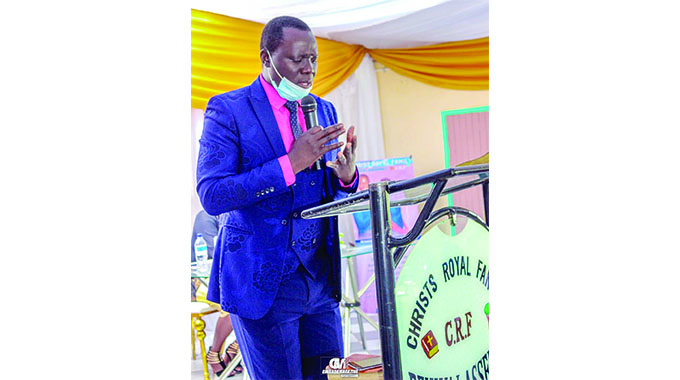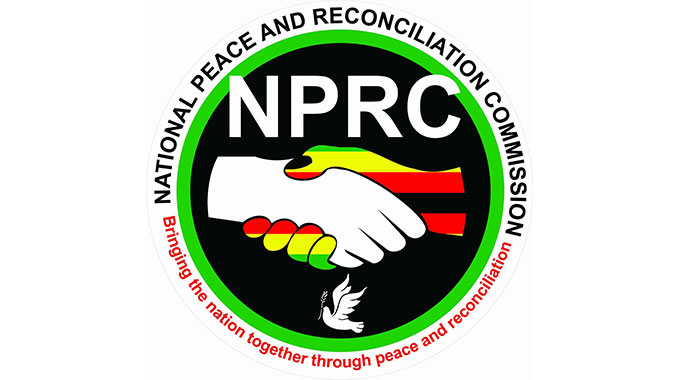NPRC takes peace campaigns to community level

Sukulwenkosi Dube-Matutu, Matabeleland South Bureau Chief
THE National Peace and Reconciliation Commission (NPRC) is working closely with the church and other stakeholders to decentralise its outreach programmes in order to prevent electoral-related gender-based violence ahead of the forthcoming elections.

National Peace and Reconciliation Commission
NPRC has partnered with United Nations Women and the Zimbabwe Council of Churches to host nationwide training programmes on electoral gender-based violence prevention as part of efforts to capacitate stakeholders ahead of this year’s elections.
A two-day electoral gender-based violence conflict prevention and management training seminar was held in Gwanda on Friday where NPRC Southern Region coordinator, Mr Mathew Svodziwa, stressed the need to preserve and promote peace across the country.
“As NPRC we are moving on with the Government’s thrust that we don’t want to leave anyone and any community behind as we seek to achieve peace,” he said.
“To enhance peace and reconciliation we’re saying let’s move where people are. We’ve decentralised our offices from national to regional and now provincial level.
“We’ll soon be decentralising our offices to district level to ensure that we can address the needs of people in their local communities. In addition to decentralising our offices, we also have peace committees comprised of various stakeholders that have been set up in various provinces.”
Working with partners, Mr Svodziwa said peace committees have been set up at the church level to scale up awareness and peace messaging.
“These structures will help us to ensure that there is peace pre-elections, during elections and post elections,” he said.
Reverend Sipho Mhizha who is the leader of the Gwanda Brethren in Christ Church and peace ambassador under Ecumenical Church Leaders Forum and Zimbabwe Christian Alliance said they have an outreach programme where they were educating community members on conflict management and resolution in various wards in Gwanda.
He said they have covered eight rural wards under the conflict prevention management resolution transformation and healing (CPMRTH).
“We want to ensure that there is a difference in the areas that we have visited and that is why there is a transformation component,” he said.
“We want people to heal and recover from past hurt. We have established ward peace committees in all these wards that we have visited. We first hold a three-day workshop with all stakeholders and after that, we establish a local peace committee and train the members so they can continue with the peace-building mission.”
Rev Mhizha said the electoral gender-based violence prevention message will also cascade down to the local peace committees.
Zimbabwe Council of Churches general secretary, Reverend Wilfred Dimingo, said communities should talk openly about issues of conflict and have conflict resolution and management strategies.
In order for conflicts to be resolved amicably and fairly all parties involved must be given the opportunity to dialogue freely without being threatened or suppressed, he added.
“As the church, we have theological mandate to promote peace and NPRC has a constitutional mandate. This corroborated effort in promoting peace is for the good cause of our community and country,” said Rev Dimingo. “We want elections to be a process that everyone enjoys participating in as a constitutional obligation for citizens in Zimbabwe.” – @DubeMatutu










Comments